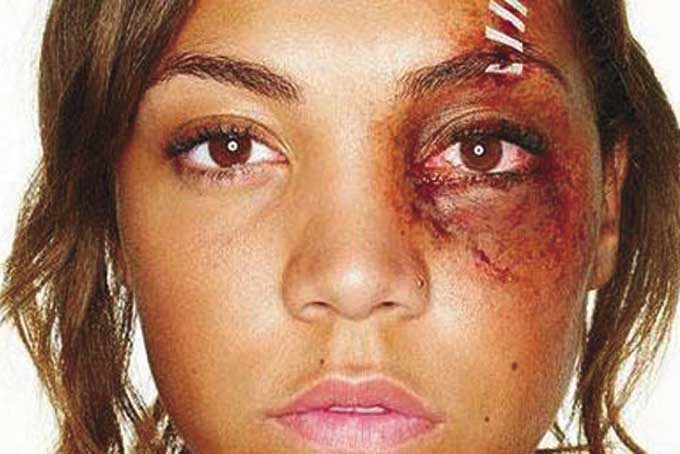
Intimate partner violence (IPV)—maybe a loved one experienced it. Your best friend. Your neighbor. Maybe you’ve lived with it. According to this distressing statistic, we’re all likely to know someone who has: One in three women has experienced IPV (many of us also know it as “domestic violence”).
The Women’s Center and Shelter of Greater Pittsburgh estimates that more than 46,000 women in Allegheny County are victims of IPV. Anyone can experience it, regardless of age, sex, income, ethnic background, religion or sexual orientation.
What is IPV? It happens between two people who are in a close (romantic or sexual) relationship. It can include:
•Physical violence—hitting, pushing, grabbing, kicking or any other kind of physical force (whether or not it leaves bruises or any other marks);
•Sexual violence—being forced to take part in a sex act without agreeing to or wanting it;
•Emotional abuse—hurting someone’s self-worth, threatening to hurt loved ones, stalking, name-calling or limiting the friends or family one can see or
•Controlling money, belongings or the decision to become pregnant.

The effects of IPV are many. Victims can have physical wounds that are easy to see. But sometimes they are hidden. IPV victims experience more chronic pain, bowel problems and migraines. Judy Chang, MD, MPH, associate professor of obstetrics, gynecology and reproductive sciences at the University of Pittsburgh School of Medicine, sees patients and research volunteers who have different health effects from IPV. Chang notes, “As a doctor, I see health effects like pelvic pain, sexually transmitted infections, problems with sex and unplanned pregnancies. I hear from women who get worn down by verbal abuse. The abuse goes to the heart of their concept of themselves. It can make them think, ‘Maybe he’s right. Maybe I am worthless or deserve this abuse.’”
IPV is also linked to poor mental health and harmful behaviors. Victims may experience anxiety, depression or have a hard time trusting people. They may develop eating disorders, smoke or use drugs just to cope with the abuse.
Dr. Chang has done research on how best to help victims of IPV. She has also done research on how doctors can best communicate with their patients about IPV and earn their trust. Other research involves how mothers who are victims of IPV talk to their children about the violence.
Dr. Chang and colleagues are working with health care providers on how to talk to patients about IPV in a way that is most comfortable and helpful to patients. They’re also looking at programs designed to change attitudes and behaviors of men who use violence against their partners.
They’re looking at how the programs work and what lessons—if any—the men are getting from being in them.
If you feel you are being abused, what can you do? First, know that you’re not alone. “It really is a universal problem,” says Dr. Chang. “It’s not isolated in any particular race, socioeconomic status or professions. One in five men admits to using physical violence in relationships.”
There is help. If you feel comfortable telling your health care provider, she or he can link you to helpful resources. Memorize the National Domestic Violence Hotline—1-800-799-SAFE (7233) or www.thehotline.org—so you don’t have to write it down and risk someone finding it. It will link you to the resources closest to you (see a list of local resources elsewhere on this page). For some victims of IPV, the time after they leave their abusers can be the most dangerous. Try to have a plan and people who can help in an emergency. Dr. Chang advises patients to have a plan and:
• Hide money so you can leave quickly;
• Make copies of important papers like birth certificates, Social Security numbers and immunization records and keep them hidden yet easy to find;
• Memorize hotline numbers and
• Develop a code with friends, family and neighbors that signals you need immediate help.
Some people have a hard time understanding why victims of IPV stay in relationships with their abusers. Dr. Chang says the reasons are complicated. “Abusers don’t always abuse,” she says. “In fact, sometimes the relationship is wonderful. Also, victims may be afraid to leave. They feel threatened. They may not know how to survive financially, socially, or culturally without this person.”
Intimate partner violence is not something people have to accept. Even if it’s widespread, it’s not a healthy experience.
“Nobody ever deserves this,” says Dr. Chang. “No one deserves to be hurt or afraid of the person who is supposed to love them.”
Follow @NewPghCourier on Twitter https://twitter.com/NewPghCourier
Like us at https://www.facebook.com/pages/New-Pittsburgh-Courier/143866755628836?ref=hl
Download our mobile app at https://www.appshopper.com/news/new-pittsburgh-courier